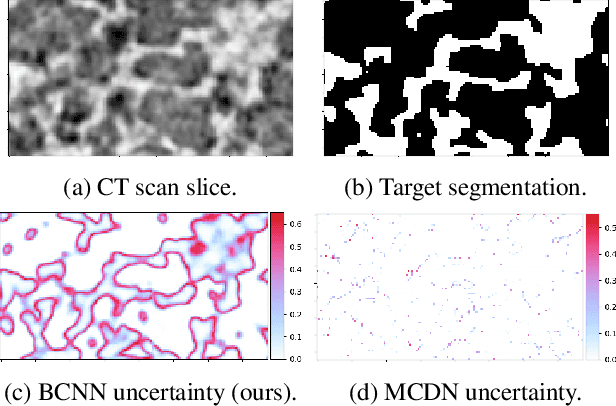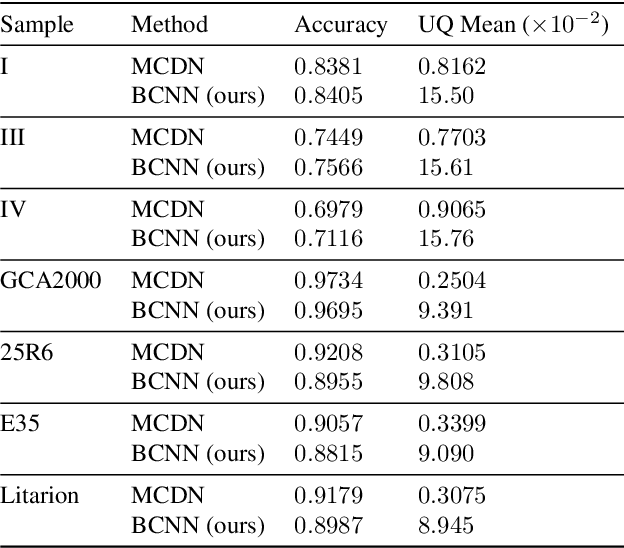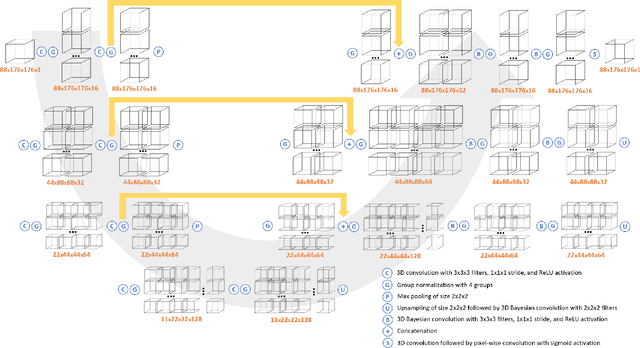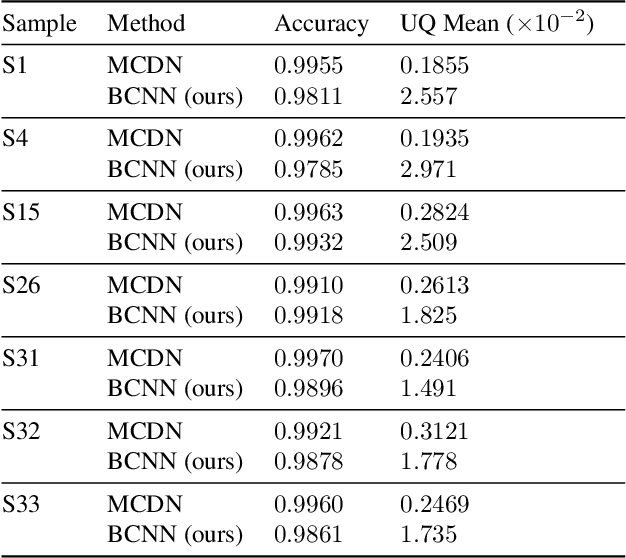We Know Where We Don't Know: 3D Bayesian CNNs for Uncertainty Quantification of Binary Segmentations for Material Simulations
Paper and Code
Oct 23, 2019



Deep learning has been applied with great success to the segmentation of 3D X-Ray Computed Tomography (CT) scans. Establishing the credibility of these segmentations requires uncertainty quantification (UQ) to identify problem areas. Recent UQ architectures include Monte Carlo dropout networks (MCDNs), which approximate Bayesian inference in deep Gaussian processes, and Bayesian neural networks (BNNs), which use variational inference to learn the posterior distribution of the neural network weights. BNNs hold several advantages over MCDNs for UQ, but due to the difficulty of training BNNs, they have not, to our knowledge, been successfully applied to 3D domains. In light of several recent developments in the implementation of BNNs, we present a novel 3D Bayesian convolutional neural network (BCNN) that provides accurate binary segmentations and uncertainty maps for 3D volumes. We present experimental results on CT scans of lithium-ion battery electrode materials and laser-welded metals to demonstrate that our BCNN provides improved UQ as compared to an MCDN while achieving equal or better segmentation accuracy. In particular, the uncertainty maps generated by our BCNN capture continuity and visual gradients, making them interpretable as confidence intervals for segmentation usable in subsequent simulations.
 Add to Chrome
Add to Chrome Add to Firefox
Add to Firefox Add to Edge
Add to Edge